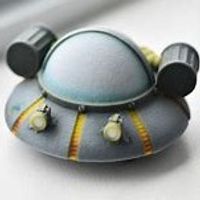Hotend heater does not show up in DWC
-
@cosmowave I use the orignal Tronxy TR leveling sensor.
https://www.tronxyonline.com/Tronxy-Black-TR-Auto-Leveling-Sensor-p1486299.html
I run it with 12V because I have not connected it to the 5V or the 3.3V of the IO port.
-
@droftarts said in Hotend heater does not show up in DWC:
I got it to work whith a trigger value of 1000 and the usual value is 964.
With the comment he meant his Z-Probe.
Not the thermistor. -
@norder oops! Thanks, reading on phone screen, I missed that! I’ve deleted my reply.
Ian
-
@foesi said in Hotend heater does not show up in DWC:
Is there a way to get the normal value down to 0?
An analog sensor needs at minimum a bit offset.
How is the sensor configured in config.g?
Can you exactly describe your wiring please. -
This post is deleted! -
@cosmowave the sensor is configured like this:
; Z-Probe
M558 P1 C"!io3.in" H5 F120 T6000 ; set Z probe type to switch and the dive height + speeds
G31 P999 X-41 Y5 Z5 ; set Z probe trigger value, offset and trigger height
M557 X50:550 Y50:550 S50 ; define mesh gridI have connected the signal to the io3.in of the IO_3 port. The + and - are connected to the 12V port in the center of the board.
-
@foesi For me, the config and wiring seems ok.
Perhaps it helps when you insert a resistor into the signal line from probe to io3 pin to get a lower value?
But i'm not completely sure if this will work... -
@foesi
"but I have put 84000 there which is the resistance I measured at around 18°C"That's a really unlikely resistance for a 100k thermistor at 18C. It should be well above 100k, close to 150k, at that temperature. These thermistors are specified at 25C, and have a negative temperature coefficient, which means the resistance is higher at lower temperatures.
Is it possible you used your fingers to hold the meter leads on the thermistor, and got a reduced reading due to leakage through your skin?
Anyways, use the nominal 100k value in your calibration. It is probably very close to correct.
-
@mendenmh the resistance of normal thermistors goes down when the temperature increases. Thats what NTC means negative temperature coefficient, so the values go in opposite directions.
PT100/1000 are positive temperature, so both values go in the same direction@foesi using 84000 is incorrect. the value stated in the firmware is the value the thermistor will read at 0 degrees, so 100000 is what you should be using
-
@jay_s_uk You and I said the same thing, about the negative temperature coefficient. I said resistance is higher at lower temperatures; you corrected to lower at higher temperatures.

However, your statement about the value for a thermistor being specified at zero degrees is wrong. Most thermistors are standardized at 25C. Pt100/Pt1000 are, indeed, standardized at 0C. But it is still correct that the 100000 is the right number to have put in the file.
-
 undefined jumpedwithbothfeet referenced this topic
undefined jumpedwithbothfeet referenced this topic